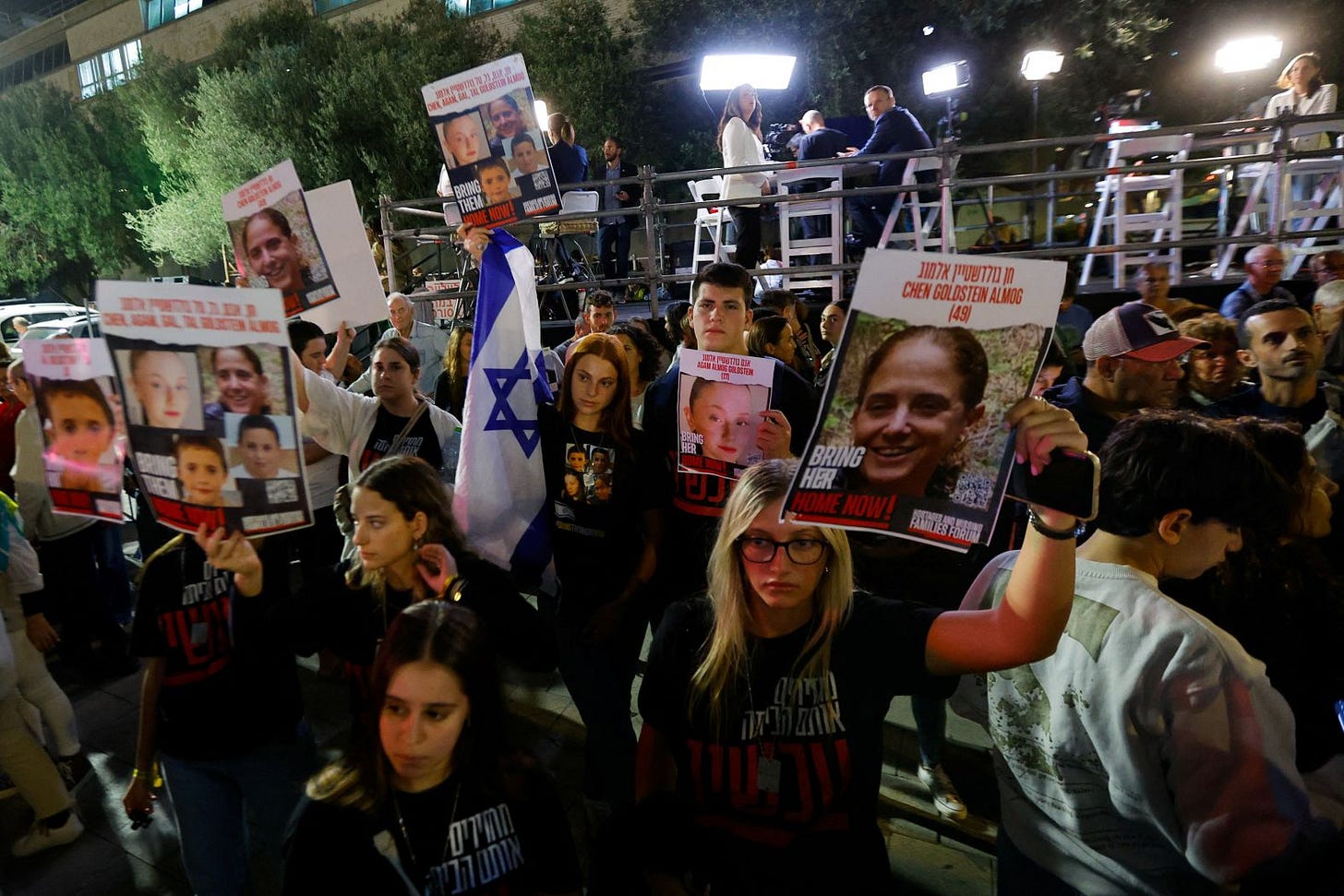Joe Did What?
World Peace Edition
Awaiting the hostages in Tel Aviv. Photo by Alexander Ermochenko/Reuters via CNN, November 25
I come to praise Joe Biden, not to bury him, for working, while certain people were screaming at him for failing to say “cease-fire”, to make a cease-fire and ensure that the victims of Hamas kidnaping would start coming out of Gaza, as desperately needed aid fl…
Keep reading with a 7-day free trial
Subscribe to Yastreblyansky’s Substack to keep reading this post and get 7 days of free access to the full post archives.


